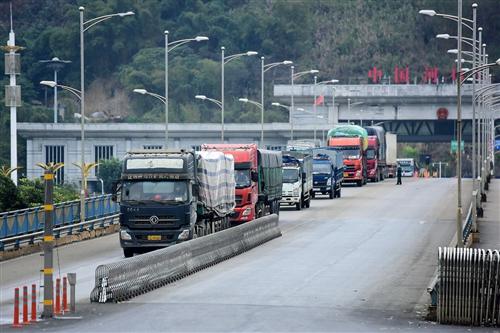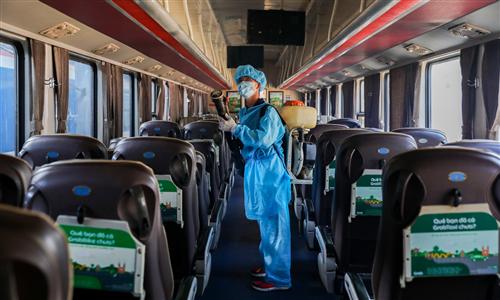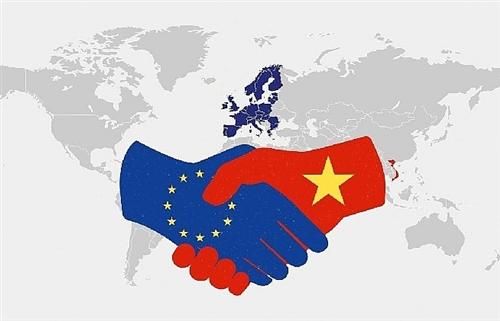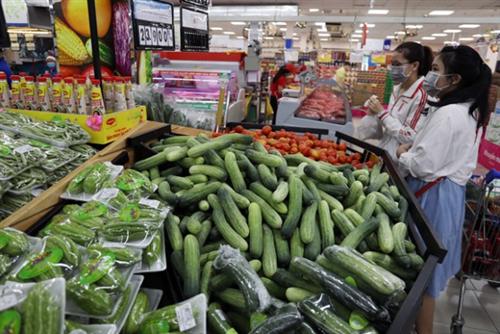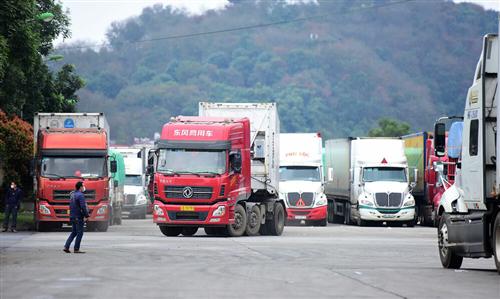City to expand collective economic model
City to expand collective economic model
As the first collective economic unit operating in the field of environmental sanitation in Hoc Mon District, Bao Tin Co-operative faced difficulties in its first two years of operation because of a lack of management experience and qualified staff. 
In addition, many people at the time did not want to join the cooperative. But all of these difficulties were gradually overcome, and after 10 years of establishment, the cooperative has achieved many encouraging results.
Ly Van Hoa, the co-operative’s director, said “From having only 11 staff in charge of collecting garbage in the initial stage, the co-operative now has 105 workers who collect garbage from more than 41,000 households and nearly 700 production facilities, businesses, and administrative units in many communes in Hoc Mon District, with the total amount collected about 60 tonnes a day.”
Established in 1989, Saigon Co.op in 2018 increased its revenue by 30,000 times to VND30 trillion (US$1.29 billion).
Its first supermarket, Co.opmart Cong Quynh, opened in 1996 and has since developed a series of modern retail businesses that cover all retail segments These include Co.op Food, HTVCo.op TV shopping channel, Co.opXtra hypermarket, Sense City shopping mall, Co.op Smiles modern grocery stores, and Cheers 24-hour convenience store.
It now has more than 800 supermarkets and malls and receives over one million customers a day.
These are among the most successful co-operative models in HCM City.
Le Thanh Liem, deputy chairman of the city's People’s Committee, said the city had achieved positive results after 15 years of implementing the Party Central Committee’s resolution on continued reform, development and improvement of the collective economy model.
By the end of 2018, the number of co-operative groups, co-operatives and unions of co-operatives had increased significantly to reach 2,097, 612, and six, respectively, he said.
They operate in various sectors, including services and trading, transportation, environmental hygiene, agriculture, industry, crafts, and credit, he added.
According to the city's Department of Agriculture and Rural Development, 91 co-operatives are involved in the agricultural sector, an increase of 69 compared to 15 years ago.
The average capital of each cooperative increased from over VND1.4 trillion ($60.35 million) in 2004 to VND3.4 trillion ($146.5 million) last year, and the average annual revenue also went up from nearly VND300 million ($12,922) to over VND5.8 billion ($249,830), and average profit increased from VND66.4 to VND542 million, it said.
The collective economic model has also achieved positive results in the field of trade and services, according to the Department of Industry and Trade.
Notably, the city has nearly 20 new-style cooperatives in the field of exploiting and management of traditional markets. These cooperatives have managed the operation of markets on behalf of the State, with the State collecting annual fees without having to pay salaries for the management board at the traditional markets as it had done previously.
Liem said: “The number of co-operatives and unions of co-operatives with working capital in the hundreds of billions and thousands of billions is rising. Many have expanded across the country and export their products to many markets.”
The collective economic sector has helped create jobs and increase incomes for its members, he added.
But he also noted that there are still limitations in developing the collective economy.
Most co-operatives are small with limited funds, lack business strategies, have poor management compared with other economic sectors, and are disadvantaged in an integrated economy, he said.
New-style co-operative
To improve the efficiency of the collective economic model, in the 2021-30 period the city will focus on developing a new-style co-operative model, he said.
It also targets setting up 300 co-operatives and five unions of co-operatives, he said.
The sector is expected to achieve annual growth of 7 per cent, account for 0.6 per cent of the city’s economy, and create 30,000 jobs each year, he said.
The city also seeks to increase the ratio of co-operative leaders with college and university degrees to 60 per cent, he said.
To achieve these targets, the city will implement a number of measures such as increasing the capital of the City Cooperative Member Support Fund to VND2 trillion ($86.1 million) by 2030.
It will continue to connect credit organisations and co-operatives, provide training to co-operative managers, and help promote their products and improve their technologies.
Diep Dung, Saigon Co.op chairman, said the city should help co-operatives access finance and land.
With co-operatives expanding, the Government should amend the 2012 Co-operative Law to suit their current development status, he added.
Nguyen Thien Nhan, secretary of the city's Party Committee, asked relevant departments and agencies would review and improve policies on land, capital and technology in the collective economic sector to raise the sector’s operational efficiency.
The city needs to expand high-efficient co-operative models and quickly make five-year plans for collective economic development in each sector, including agriculture, transportation, environmental hygiene, credit funds, housing and others, he said.
Departments and sectors should come up with solutions for problems faced by co-operatives related to the use of agricultural land as well as access to loans from banks for production, purchase of machinery, and building of facilities, he added.







